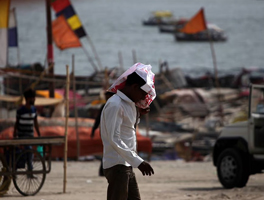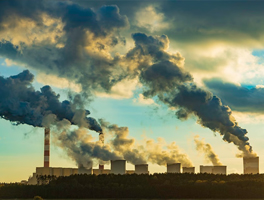 |
Dear readers,
Welcome to the Climate Weekly newsletter by the Centre for Science and Environment’s Climate Change programme and Down to Earth.
India is facing an escalating risk of heatwaves and warm nights, with Goa and Maharashtra recording India’s first heatwaves of 2025 on February 25—the first time a heatwave occurred during the winter season, CSE’s Kiran Pandey reports. The India Meteorological Department (IMD) also confirmed that February 2025 was the hottest February in 125 years. Annual data shows that in 2025, the country witnessed the earliest heatwaves in the last four years, with Odisha and Jharkhand recording heatwave conditions on March 15 and March 18 respectively. In 2024, both states had recorded heatwave conditions on April 5, showing a marked escalation in rising temperatures.
Recent IMD data also highlights the increase in warm night conditions across the subcontinent, with 31 states and union territories (UTs) recording night temperatures that were at least 1°C above normal in the month of February. Of these, 22 states/UTs reported night temperatures 3°C to 5°C above normal, while ten states/UTs recorded night temperatures exceeding 5.1°C above normal. According to the IMD, this trend has continued in the month of March, with Odisha and Jharkhand recording their first warm night conditions on March 15, significantly earlier than 2024 when Gujarat and Maharashtra saw their first warm nights on March 27.
Meanwhile, a new report has found that building and construction emissions in 2024 stalled for the first time since 2020. Released on March 17, the Global Status Report for Buildings and Construction 2024-2025 shows that efforts to decarbonise buildings are underway, with the energy intensity of the sector reducing by almost 10 per cent and the share of renewable energy in final energy demand increasing by nearly 5 per cent. However, the sector remains a major contributor to the climate crisis, consuming 32 per cent of global energy and emitting a third of global greenhouse emissions. The report highlights the urgency of increasing investments in energy efficiency and implementing ambitious energy codes, particularly for major carbon-emitting countries.
Lastly, between April 30 and May 14, CSE will host an online certificate course on environment data, maps and Geographic Information System (GIS) for communication. The self-paced course is aimed at providing hands-on training to interpret and analyse spatial data, with an emphasis on data sourcing, analysis and visualisation. Find out more about the course here.
|
|
 |
| |
 |
|
| |
 |
 |
| |
By - Upamanyu Das
Climate Change, CSE
|
| |
|
 |
|
|
| |
 |
|
| |
| EXTREME WEATHER TRACKER |
| |
India records earliest heatwave and warm nights in 2025, 19 March 2025
|
 |
 |
|
|
| |
 |
|
| |
 |
 |
Warming causing CO2 levels highest in the past 8,00,000 years: WMO, 19 March 2025
|
|
|
| |
|
|
| |
|
|
| |
 |
|
| |
|
|
| |
|
|
| |
|
|
| |
 |
|
| |
CLIMATE NEWS | SCIENCE| IMPACTS| POLITICS |
|
| |
 |
|
| |
|
|
| |
 |
|
| |
|
|
| |
 |
|
| |
|
|
| |
 |
|
| |
|
|
| |
 |
|
| |
|
|
| |
 |
|
| |
|
|
| |
 |
|
| |
|
|
| |
 |
|
| |
|
|
| |
 |
|
| |
|
|
| |
|
|
| |
Online Training Course |
|
| |
|
|
| |

|
|
| |
|
|
|